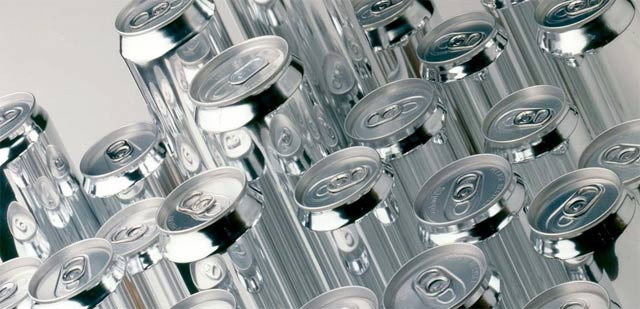Duty-free imports threaten Pakistan’s first can manufacturing plant
Local manufacturer seeks hefty cut in duty on raw material imports

Local manufacturer seeks hefty cut in duty on raw material imports. STOCK IMAGE
In order to cope with the anticipated flood of cheap goods from Sri Lanka, the company has now sought a three-time reduction in customs duty on the import of raw material to remain competitive in the market.
Sindh to approach Belarus for setting up tractor plant
Pakistan’s free trade agreements with China, Malaysia and Sri Lanka have made many local industries uncompetitive. Experts have questioned the Ministry of Commerce’s ability to negotiate these deals that give undue advantage to the three countries at the expense of domestic industries.
Ashmore Group of the United Kingdom has set up the metal can manufacturing plant in Faisalabad with an investment of $70 million. Pakistan’s Liberty Group owns a minority stake in the plant that has annual production capacity of 700 million cans - double than Pakistan’s market requirements.
The plant has started its operations in the current month. It may be expanded to an annual capacity of over 1.2 billion cans and will manufacture a range of standard and specialty beverage cans for Pakistan and Afghanistan markets.
The Ashmore Fund has already registered a company in Pakistan in the name of Pakistan Aluminium Beverage Cans Limited. The UK-based company bought 24 acres of land to install the unit of tin packaging.
Pakistan meets its tin packaging requirements through imports. The company had sought an increase in customs duty on finished goods and a reduction in import duty on raw material like coil and coil ends to bring down the cost of production.
“The company welcomes the government’s decision to increase customs duty on the import of finished goods from 11% to 20% in the new budget,” said Abdullah Yousuf, Co-chairman of Pakistan Aluminium Beverages Company.
He was making the case for duty reduction in a meeting of the Senate Standing Committee on Finance on Wednesday.
He, however, said the government had not reduced the customs duty on raw material from 11% to 3%, which was a serious matter for viability of the project.
Yousuf, who is former chairman of the Federal Board of Revenue, said the raw material constituted 60% of the production cost. Under the FTA, he said, Sri Lanka could export tin cans at zero duty and its companies had already started exploring Pakistan’s market.
“The Sri Lankan high commissioner to Pakistan has protested against the increase in duty on finished goods and is planning to meet the finance minister,” said Dr Mohammad Irshad, FBR Chairman.
Irshad did not commit any cut in the duty on raw material at this stage, saying the company had made its business plan on the basis of 11% customs duty.
China to invest in K-P: Khattak
Yousuf admitted that his company did not have an idea that there was a can manufacturing plant in Sri Lanka. He said the company had hoped that the government would reduce customs duty on raw material after the start of plant production.
FBR Member Customs Zahid Khokhar told the standing committee that the FBR’s original proposal was to increase the duty on finished goods and reduce it on raw material. It was the finance minister’s decision that the new plant should not be given relief in case of both finished goods and raw material, he said.
However, the FBR chairman promised that they would impose regulatory duty on can imports as soon as imports started coming from Sri Lanka.
Published in The Express Tribune, June 1st, 2017.
Like Business on Facebook, follow @TribuneBiz on Twitter to stay informed and join in the conversation.



















COMMENTS
Comments are moderated and generally will be posted if they are on-topic and not abusive.
For more information, please see our Comments FAQ